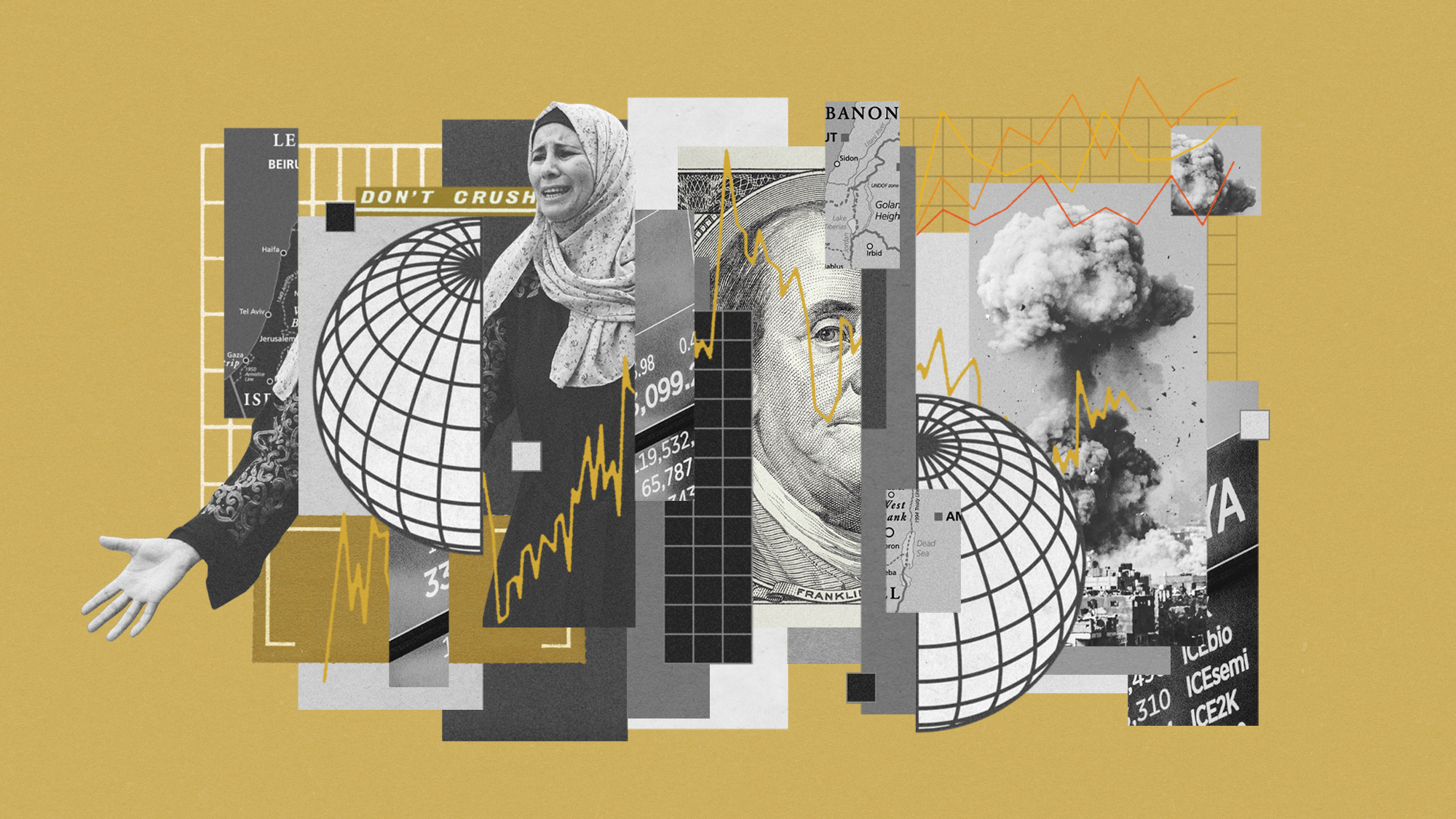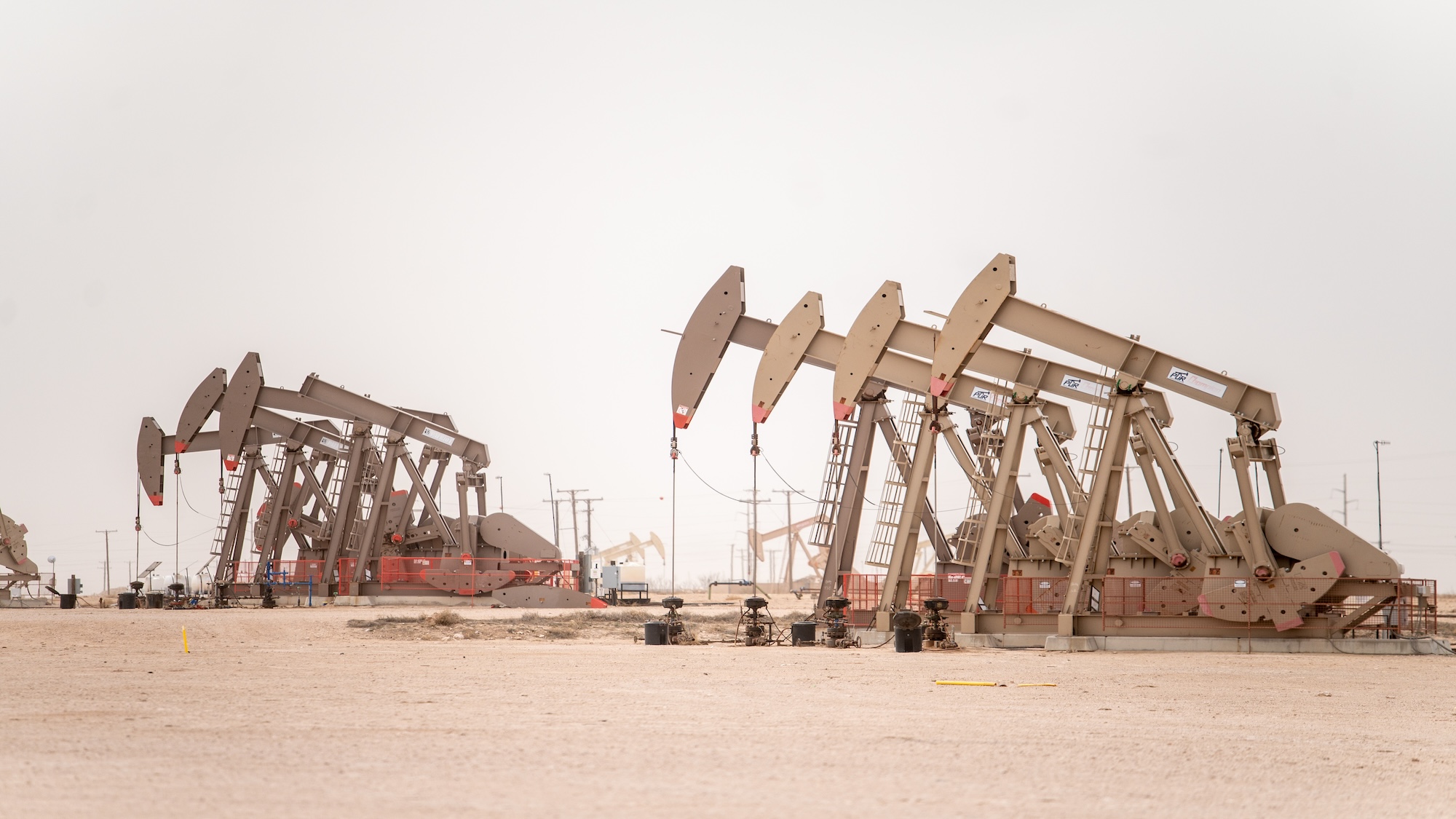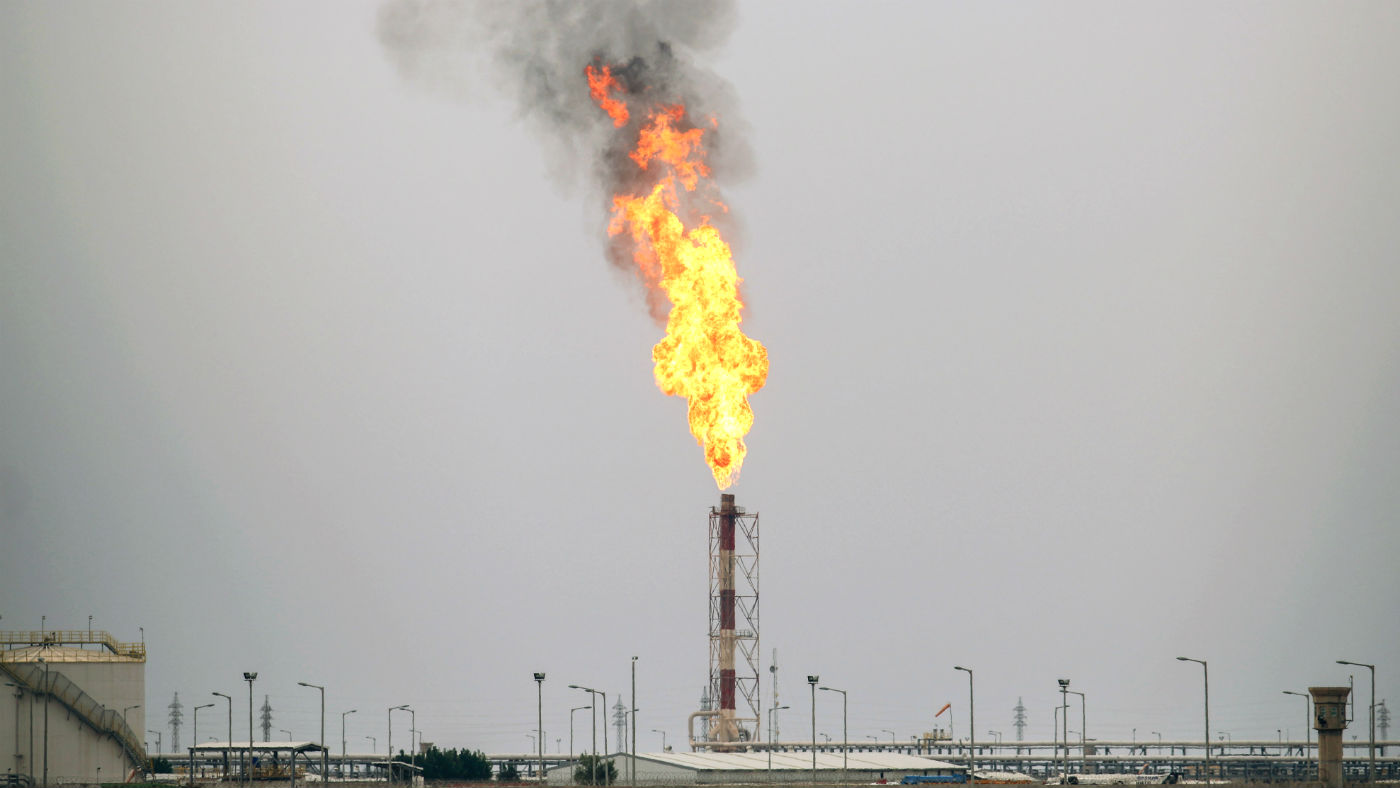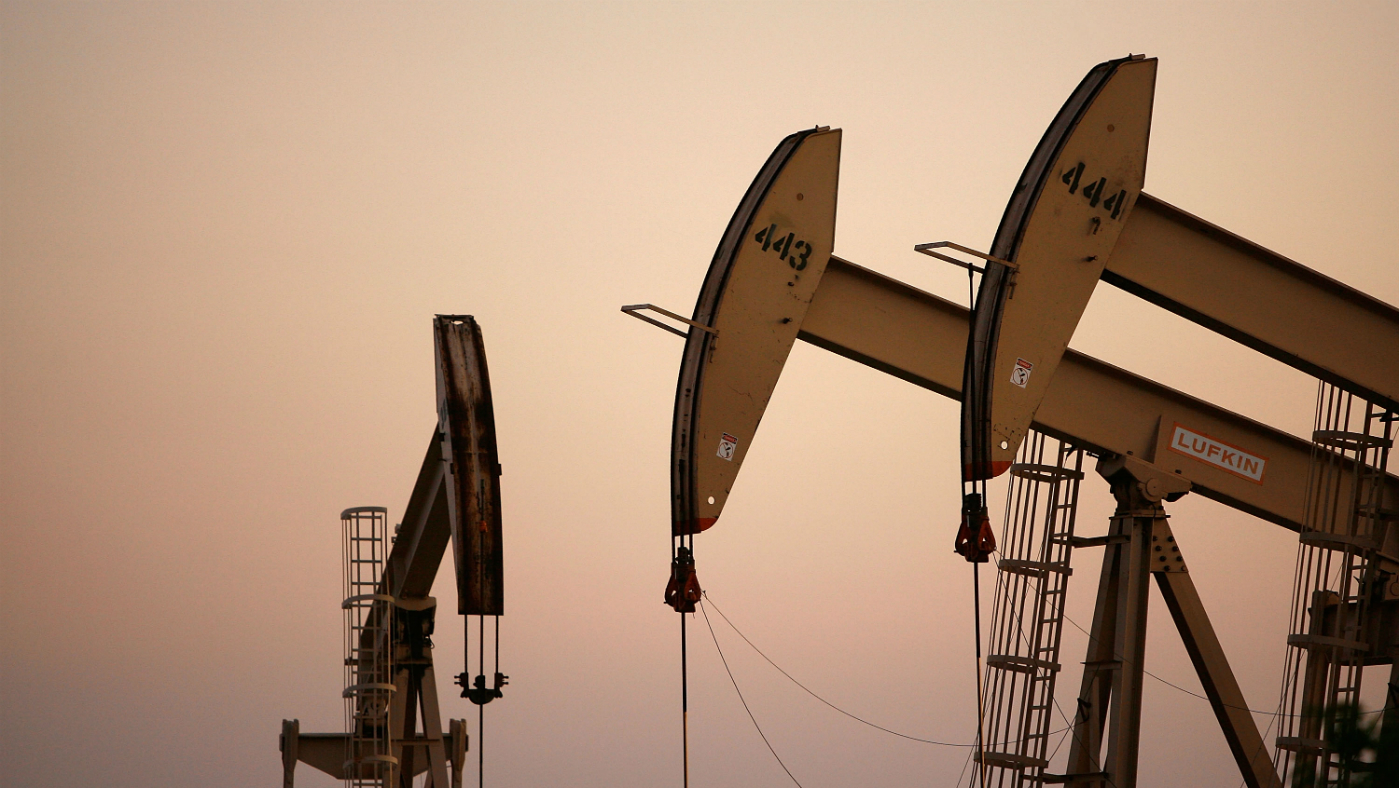Oil price posts two-year highs - but how long can it last?
Brent rose above $59 a barrel this week, its best third-quarter showing since 2004

A free daily email with the biggest news stories of the day – and the best features from TheWeek.com
You are now subscribed
Your newsletter sign-up was successful
Oil price: why it could stay lower for longer
27 July
A recent sharp fall in the price of oil is likely to hold through at least the second half of the year, as chronic oversupply shows no signs of abating and production looks set to ramp up just as demand recedes.
Oil had recovered earlier this year following its dramatic plunge through much of 2014, but in recent weeks it has been on a downward trajectory. Prices entered bear market territory last week, having shed 20 per cent from a peak in May. Higher summer demand has failed to prevent stockpiles swelling further and the market is pricing in a likely substantial future increase in exports from Iran.
The Week
Escape your echo chamber. Get the facts behind the news, plus analysis from multiple perspectives.

Sign up for The Week's Free Newsletters
From our morning news briefing to a weekly Good News Newsletter, get the best of The Week delivered directly to your inbox.
From our morning news briefing to a weekly Good News Newsletter, get the best of The Week delivered directly to your inbox.
In afternoon trading in London on Monday, Brent crude hit a four-month intraday low of $53.36. This is down significantly on its Friday closing price of $54.62, itself the lowest finish since mid-March, according to Reuters. The latest slide follows a rout on Chinese stockmarkets overnight in the wake of a slew of weak economic data, which saw the benchmark Shaghai composite shed 8.5 per cent. China is the second largest consumer of oil in the world.
Other factors include yet more evidence that the supply imbalance is worsening, with data on drilling rigs suggesting US production is accelerating, exports from Iraq set to hit a monthly record and Gulf states continuing to pump more oil than needed. Market Watch adds demand for crude is near a seasonal peak and will decline into the autumn.
Reuters says InterContinental Exchange data show traders are now cutting bets on a longer-term rise in oil prices, with hedge fund managers reducing longer-term positions on oil futures for the first time in four weeks.
Societe Generale oil analyst Michael Wittner agreed it was hard to see where price increases in the coming months would come from, "even if the global oversupply and seasonal weakness are becoming priced in". Adding to oil woes is the fact that commodities in general are out of favour with investors as speculation mounts that the US could be set to increase interest rates.
A free daily email with the biggest news stories of the day – and the best features from TheWeek.com
The Financial Times says that expectations that the oil price will remain depressed has prompted major producers to drop projects worth a combined $200bn in an attempt to protect investor dividends. The plunge in crude prices has resulted in the deferral of 46 big oil and gas projects with 20bn barrels of oil equivalent in reserves, with expensive deepwater drilling plans in particular being deferred.
Oil price drops sharply on surprise rise in reserves
23 July
The oil price took another significant dip yesterday after a surprise rise in US crude reserves fuelled ongoing oversupply concerns, dragging prices to three-month lows.
The Wall Street Journal reports that benchmark Brent crude fell by 1.6 per cent to $56.13 per barrel, while lighter US crude fell more than 3 per cent on the New York Mercantile Exchange and dropped below $50 for the first time since early April. That could trigger further selling, according to some analysts.
Having crept up in the early part of the year and stabilised through May and June, oil prices entered a bear market earlier in July as stubbornly high inventory figures and then news that an Iranian nuclear deal could result in the country ramping up exports next year weighed on sentiment.
The BBC says the latest slide came after the US Energy Information Administration released data showing crude oil stocks in the country had risen by 2.5 million barrels, defying predictions of a 2.3 million barrel decline. The Wall Street Journal notes that this also represents a reversal of typical seasonal trends, when a ramping up of refinery activity ahead of a period of maintenance eats into reserves.
Oversupply is in part the result of a market share war between the Opec bloc led by Saudi Arabia and the US, which is riding an energy boom driven by shale exploration. According to CBC News, the EIA estimates the world is currently producing about 95.5 million barrels of oil every day, ahead of demand for around 93.6 million barrels.
Iran has said it intends to boost its own exports by one million barrels after economic sanctions are lifted, assuming that a deal struck with the West over limiting its nuclear ambitions holds. This could prolong supply issues and hold down prices, which is a concern for states that rely on oil revenues but is good news for consumers.
Oil price languishes as Iran supply concern lingers
20 July
Oil prices continue to languish and are holding onto three week losses as concerns over supply continue and debate intensifies over a potential flood of oil coming to the market from Iran as international sanctions are lifted.
At the end of morning trading, benchmark Brent Crude was trading at $56.67 a barrel in London, 0.7 per cent lower than the closing price on Friday. It means, according to Bloomberg, that suggestions of a rebound following three weeks of losses and a 2.8 per cent drop last week have been thwarted.
Prices have fallen from a high of $69.63 in May as a supply glut in the US continues to weigh on investor sentiment. Having hovered around $60 a barrel for more than a month as investors weighed increasing demand against a stubborn supply glut, a preliminary deal reached between Iran and Western governments earlier this month saw Brent enter bear market territory.
The deal, which Western governments say will prevent the Islamic republic from being able to build a nuclear weapon, could see stringent trade sanctions could be lifted as early as next year. Iranian oil minister Bijan Zanganeh has said the country could quickly increase exports by one million barrels a day from the 1.4 million it currently ships, taking it back to levels seen before sanctions were imposed in 2011.
Analysts at RBC told the Sydney Morning Herald that the claims amounted to "hyperbole", suggesting any increase above 500,000 barrels would be impossible without major investment in oil fields. But that investment may be forthcoming. The Independent reports that European majors such as BP, Shell, Eni, Statoil and Total have already held meetings in Tehran and are "seriously considering a move into the country".
Bloomberg analysis suggests precedents from the re-entry of Venezuela and Libya into the market suggest Iranian estimates are very plausible, with export increases of two million barrels in four months and 1 million in six months respectively.
Oil price rebounds after knee-jerk fall on Iran deal
15 July
The price of oil dropped yesterday as investors reacted to the deal between Iran and the West – but prices have since rebounded.
The agreement between Tehran and six world powers opens the door for Iranian crude to flood into an already saturated market.
As traders responded, Brent North Sea crude price for delivery in August shed 75 cents to stand at $57.10 a barrel in London on Tuesday afternoon, Sky News reports. Meanwhile, a barrel of US crude, or West Texas Intermediate, tumbled by more than 2.5 per cent.
After the knee-jerk response to the deal, the oil price regained some of its losses. WTI posted a gain for the day of $1.06, or 2 per cent, to $53.26. Wall Street believes that it will take longer than initially believed for Iran to ramp up production and get its oil to market.
This is a view shared by industry analysts. "Traders aren't expecting a surge in supply from Iran right away" Quincy Krosby, market strategist at Prudential Financial, told USA Today. "With a market that is currently oversupplied, the ultimate supply addition from Iran should push prices lower, just not immediately."
The West imposed sanctions on the Iranian oil industry in the late 2000s, banning the import, purchase and transport of oil and gas from the country.
As recently as last week, the world energy watchdog warned that the demand for oil is likely to drop next year, leading to more oversupply in an already saturated market, and a further drop in prices.
Oil price falls sharply after Iran deal
14 July
The oil price fell significantly this morning after news broke of deal between Iran and six world powers in Vienna.
Iran has agreed to a range of measures designed to ensure that it cannot develop a nuclear bomb, in return for the removal of sanctions. It clears the way for Tehran's return to world oil markets, the Financial Times reports.
In the wake of the news, Brent crude was down 2.1 per cent at $56.66 a barrel at 10am BST, with West Texas Intermediate down 2.3 per cent at $50.99.
Earlier, The Times revealed that a fleet of Iranian tankers is poised to pour 40m barrels of oil into an already over-supplied global market. If Iran re-joins the oil market it will be a boost for consumers but a blow for oil-dependent countries.
To put the potential impact in perspective, Tehran's oil tankers hold the equivalent of a month of Saudi Arabian exports to the USA, or a fortnight's production from BP.
Saudi Arabia has proved unwilling to cut production in response to the sharp downturn in oil prices. The world's biggest exporter has been steadily increasing its production, hitting 10.6m barrels a day in June, the highest figure since records began in the early 1980s.
John Kilduff, a partner at Again Capital, said: "It's all worries about supply now. It just spells glut, no matter how you look at it."
Six world powers – the UK, US, Russia, France, China and Germany – have been negotiating with Iran for several years, the BBC reports. Tehran, which wants crippling international sanctions lifted, has always insisted that its nuclear work is peaceful.
-
 Political cartoons for February 22
Political cartoons for February 22Cartoons Sunday’s political cartoons include Black history month, bloodsuckers, and more
-
 The mystery of flight MH370
The mystery of flight MH370The Explainer In 2014, the passenger plane vanished without trace. Twelve years on, a new operation is under way to find the wreckage of the doomed airliner
-
 5 royally funny cartoons about the former prince Andrew’s arrest
5 royally funny cartoons about the former prince Andrew’s arrestCartoons Artists take on falling from grace, kingly manners, and more
-
 How might the Israel-Hamas war affect the global economy?
How might the Israel-Hamas war affect the global economy?Today's Big Question Regional escalation could send oil prices and inflation sky-high, sparking a worldwide recession
-
 Recent mega-mergers could signal a turning point for the US oil industry
Recent mega-mergers could signal a turning point for the US oil industryTalking Point Both Chevron and Exxon have recently spent billions to acquire smaller oil companies
-
 Has Saudi Arabia lost control of oil prices?
Has Saudi Arabia lost control of oil prices?Today's Big Question Kingdom goes it alone to cut production, risking tension with US and reigniting cooling inflation in Europe
-
 US angered by Opec+ oil cut
US angered by Opec+ oil cutSpeed Read Energy prices to rise further as producers slash supply by two million barrels a day
-
 Global oil demand forecast lowered for 2020 and 2021
Global oil demand forecast lowered for 2020 and 2021Speed Read IEA report says jet fuel demand remains the major source of weakness
-
 Are US-Iran tensions flaring again?
Are US-Iran tensions flaring again?In Depth Trump threatens military action over Twitter
-
 Can a deal be struck to raise oil prices?
Can a deal be struck to raise oil prices?In Depth Opec+ will convene today over video link in a bid to boost crude
-
 What do negative oil prices mean?
What do negative oil prices mean?In Depth Perfect storm of oversupply and storage shortages sees producers paying to get rid of US crude